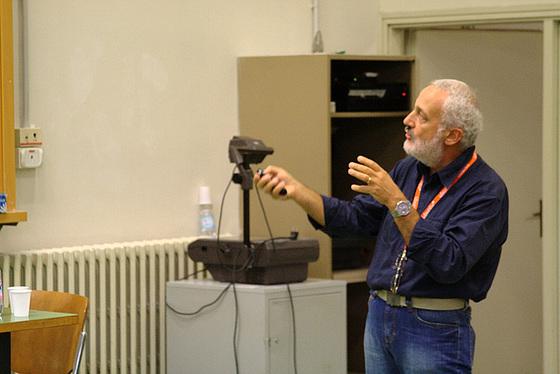
Last night Open Forum Europe and The Community For Open Interoperability Standards published a press release about the Open Document Format (ODF) Plugfest event from earlier this week.
Collabora attended and wrote our expectations for the meeting on Monday; now here are the outcomes. The announcements, some of which have already been reported, are very encouraging for the future of ODF and the spread of the native LibreOffice format. Here is the press release verbatim:
Cabinet office Plugfest builds momentum for ODF
On Monday and Tuesday, 8th-9th December, a group of technologists, SMEs, corporations, individuals, and representatives of Governments gathered in Bloomsbury, London over two days to collectively improve the implementation of Open Document Format (ODF).
“Plugfests provide both vendors and organisations implementing the standard with knowledge about ODF and the software that supports it.” said Linda Humphries, Senior Technical Adviser at the Government Digital Service. “The aim is to help vendors to improve their products so that users have a better experience when they exchange documents.”
The Government’s policy mandating ODF for editing and sharing documents, announced in July by the Minister, commits all departments to adopting the format to boost the strength and diversity of apps which read and write ODF documents. The Cabinet Office partnered with the OpenDoc Society to host this week’s event. Magnus Falk voiced Government priorities when his speech on Monday demanded “serious choice” for Government IT buyers, and a level playing field for suppliers based on the use of Open Standards and ODF.
Several major announcements highlighting an increased commitment to ODF were made. A major strength of ODF lies in its many independent implementations providing choice and flexibility. Ten independent implementations of ODF were represented, and significant technical progress was made in automated testing by 50+ delegates from 30 organisations, including 17 Government representatives.
The Dutch Government representatives commended the UK Open Standards policy, which shares it’s own aims, for delivering interoperability and avoiding vendor lock-in. They also announced they will host the next Plugfest in Summer 2015
“This week’s Plugfest marked a historic high for co-operation between ODF stakeholders in Government, software vendors, and small to medium enterprises” said Basil Cousins, Director of Open Forum Europe, “it’s encouraging to see the Cabinet Office participating in ODF implementation to drive their ground-breaking policy of file-format openness, interoperability and competition”.
Following strategic presentations and meetings on Monday from leaders including Government Deputy CTO Magnus Falk, Google’s Chris DiBona, Collabora’s Michael Meeks and Boris Devouge of Microsoft , Tuesday provided a day for technical development and testing. Particular progress was made with support for tracked changes within documents – a key feature for Government ODF users, which is yet to be implemented in Microsoft Office products and Google Docs. Compatibility between change-tracked documents was demonstrated in three Open Source implementations including LibreOffice, Apache OpenOffice, and EuroOffice, and 183 new tests were written to check formatting and interoperability with other applications.
“Interoperability is a core benefit of Open Standards such as ODF, and technically speaking the situation has never been better” said Michael Meeks, of the Document Foundation Board of Directors. “It was great to see the progress around change tracking, and we look forward to all vendors contributing to positive improvements in both implementations and the standard in this area. Across desktop, mobile, and server, ODF has never worked more consistently better”.
About Open Document Format (ODF)
Approved as an OASIS standard in 2005 and as an ISO standard in 2006, ODF is supported by a wide range of desktop office suites, web-based editors and mobile applications including leading commercial offerings from Google, Microsoft, and IBM, as well as multi-platform Open Source products including LibreOffice, OpenOffice, WebODF, EuroOffice, and Calligra Suite. It has since been adopted as an official document standard by national governments in Europe and Latin America.
About The Community for Open Interoperability Standards (COIS)
COIS is the British division of OpenForum Europe (OFE) which supports OFE’s Vision, Policies and Code of Conduct with the mission of creating a level playing field for ICT suppliers and freedom of choice for the citizen/user by supporting the drive to adopt Open Standards through the UK public sector. COIS seeks to connect the Public Sector with the technology community, guided by the Cabinet Office’s Open Standards Principles. It is committed to transparency, politically and technologically neutral, non profit & self funded with industry support and managed by a co-operation of industry organisations. Views expressed by COIS do not necessarily reflect those held by all its supporters.






